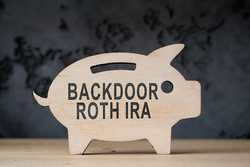UTMA is an acronym for a piece of state-level legislation called the “Uniform Transfer to Minors Act.” It allows minors to receive gifts from adults without the aid of a specific guardian or trustee. The act has replaced the Uniform Gift to Minors Act (UGMA) in all 50 states plus the District of Columbia, with South Carolina the last to do so, in March 2022.
Custodial accounts, such as an UTMA, can be used to fund educational expenses for a minor beneficiary plus virtually any other type of expense as long as the expenditure is for the benefit of that person. UTMA accounts come under the control of the beneficiary when they reach the age of majority (or another age, as designated by their state or the terms established by the account).
How an UTMA account works
UTMA accounts are a type of custodial account that accepts gifts to minor beneficiaries. An UTMA account is similar to an UGMA account in many ways. Adult donors can make gifts to either, and the money is then invested on behalf of the minor beneficiary. The person who establishes the account can choose to be the account custodian, or they can appoint another individual or a financial institution to act in this role.
As with the UGMA, the money in an UTMA account can be invested in traditional financial assets, such as mutual funds, exchange-traded funds (ETFs), stocks, bonds, and cash, on behalf of the beneficiary. Money in an UTMA account can also be invested in what are called “real” or “tangible” assets, such as real estate, collectibles, precious metals, jewelry, fine art, and other types of real property. This is not allowed for an UGMA account.
UTMA accounts can be opened at a brokerage firm, a bank, or another financial institution. They have no contribution limits, though annual gift tax limits could become a factor for high-net-worth donors. Anyone, including parents, friends, and family of the beneficiary, can contribute to the account. Contributions are irrevocable; once made, they are the property of the account and ultimately the beneficiary. The minor beneficiary assumes control of the account once they reach the age of majority in their state (or at an age specified by their state, with 25 being the oldest).
Money in the account can be used by the custodian only for the benefit of the minor beneficiary. In addition to covering educational expenses, it can be spent for other purposes as long as the expenditures are made for the beneficiary’s benefit.
UTMA account pros and cons
Pros:
- Easier than a trust. Transferring assets to a minor beneficiary can be less expensive and complicated than using a trust to do so.
- Easy to open. UTMA accounts are available at most brokerage firms and many financial institutions and can even be opened online.
- No contribution limits. Only annual gift tax limitations will apply, but as a practical matter this will not impact most people.
- Limited restrictions on use of the funds. As long as the money is used exclusively for the benefit of the minor beneficiary, you’re OK.
- Broad range of investments. Unlike with an UGMA account, you can invest in real assets as well as traditional ones.
- Withdrawals are not taxed.
Cons:
- Possible tax consequences from earnings. These can affect both the minor beneficiary and their parents.
- Can affect college financial aid. Assets in an UTMA account can work against the beneficiary when it comes time to apply for scholarships, grants, and such.
- Contributions are irrevocable. Once you’ve given money to an UTMA account, you can’t take it back.
- No financial restrictions once the beneficiary assumes control. Once the beneficiary reaches the age of majority in their state (or a different age designated by their state), they assume control of the account, and they can use the money in any way they choose. For example, if the objective of establishing the account was to fund college expenses, they are not compelled to use it that way.
How to open an UTMA account
Opening an UTMA account has several steps, including:
Choose a broker or financial institution
The first step in the process is to decide on a broker, a bank, or another financial institution with which to open the UTMA account. You should check account fees and expenses, services offered, and whether there are any restrictions on the types of investments that can be purchased or held there.
Open the account
This can often be done online, though you will need the beneficiary’s personal information, including date of birth and Social Security number. The custodian will also need to provide their personal information.
Fund the account
An UTMA is typically funded with contributions from parents, grandparents, and other family members, though anyone may contribute to it. There are no tax implications for contributions, but if an individual’s total deposits are over the annual gift tax exclusion limit, the excess amount will potentially trigger taxes.
The annual gift tax limit is $18,000 per gift recipient for 2024. The lifetime gift and estate tax exclusion for 2024 is $13.61 million per individual. Thus, as a practical matter, this will not impact most people.
Decide how to invest
This is typically done by the account’s custodian, potentially in conjunction with their financial advisor. Choices range from traditional financial investments, such as stocks, bonds, mutual funds, ETFs, and cash—to tangible investments, such as real estate, art, collectibles, precious metals, and more.
How to invest the money can be a function of several factors, including:
- The time horizon. How long will it be until the money will be used?
- The amount given. You should match the amount with the earning potential of the investment.
- Involvement of the minor beneficiary. Some custodians may want to include the beneficiary in investment decisions as a way to encourage financial literacy and a sense of responsibility.
How to use an UTMA account
An UTMA account is a vehicle to allow parents, grandparents, and other adults to provide financial assistance to a minor beneficiary. As a custodial account, it can be used for more than just funding college and higher education, as long as the expense is for the benefit of the minor beneficiary.
Conceivably, the money could be used to purchase a car for them, provide for daily needs such as housing and food, and any number of other expenses. It could also be used to give the beneficiary a solid financial start in adult life. Establishing an UTMA account is less expensive and complex than setting up a trust.
Alternatives to an UTMA account
UTMA vs. UGMA
UGMA accounts can no longer be opened, as all 50 states and the District of Columbia have repealed the UGMA and replaced it with the UTMA. Existing UGMA accounts can still be used until the minor beneficiary assumes control. Learn more here on the key differences betweena UGMA and UTMA here.
UTMA vs. 529 plan
|
Account ownership and control | The account is controlled by the custodian for the benefit of the minor beneficiary. | A 529 plan is controlled by the account owner, who is often the parent of the account beneficiary. |
Tax implications for contributions | Contributions in excess of the annual gift tax exclusion amount could trigger taxes. | Contributions in excess of the annual gift tax exclusion amount could trigger taxes. In some states there is a state tax deduction available for contributions made to that state’s 529 plan. |
Tax impact of the account | Earnings in the account could trigger a tax liability for either the minor beneficiary or their parents, though “ kiddie tax” rules could mitigate the impact for the minor beneficiary. | Money contributed to a 529 plan grows on a tax-deferred basis. As long as withdrawals are used for IRS-approved higher educational expenses, there will be no taxes charged. Money withdrawn for other purposes could be subject to both income tax and a 10% penalty. |
| | |
| This can’t be done with an UTMA account. | |
| | Limited to investment options offered within the plan. |
| The money can be used for any purpose that benefits the minor beneficiary. | |
TIME Stamp: An UTMA is less expensive—but less restrictive—than a trust
An UTMA account can be a good option for transferring money to a minor beneficiary without going through the process of creating a trust. However, if your goal is to fund college expenses for the minor beneficiary, there are other alternatives, most notably a 529 plan.
UTMA accounts are quite flexible, as the assets can be invested in just about any fashion. They can also be used for a broad range of expenses, though the expenditures must be made solely for the benefit of the minor beneficiary.
Once the beneficiary assumes control of the account, there are no restrictions on how they use the funds, even if that conflicts with the desires of the custodian. This can make an UTMA account less attractive than a trust.
Frequently asked questions (FAQs)
What happens to an UTMA account when a child turns 18?
If 18 is the age of majority in the child’s state, then the assets in the UTMA will come under their full ownership and control. However, some states set the age of majority at 19 or 21, while others mandate a different age, as high as 25, before an UTMA account becomes the property of the beneficiary.
Can a parent take money out of an UTMA?
Yes, but only for the purpose of benefiting the minor beneficiary. All contributions to an UTMA account are irrevocable; once made, they can’t be taken back.
What are the disadvantages of an UTMA account?
There are several, including:
- Tax consequences. Money in an UTMA account can trigger taxes for both the minor beneficiary and their parents due to capital gains, dividends, or other types of income generated by account assets.
- Negative impact on student financial aid. Funds held in an UTMA account can result in reduced eligibility for college financial aid for the beneficiary.
- Contributions are irrevocable. Funds deposited cannot be returned to the donor under any circumstances.
Lack of ultimate control. Upon assuming ownership of the account, a beneficiary is free to do whatever they choose with the money, even if it goes against the wishes of the custodian or other account donors.





